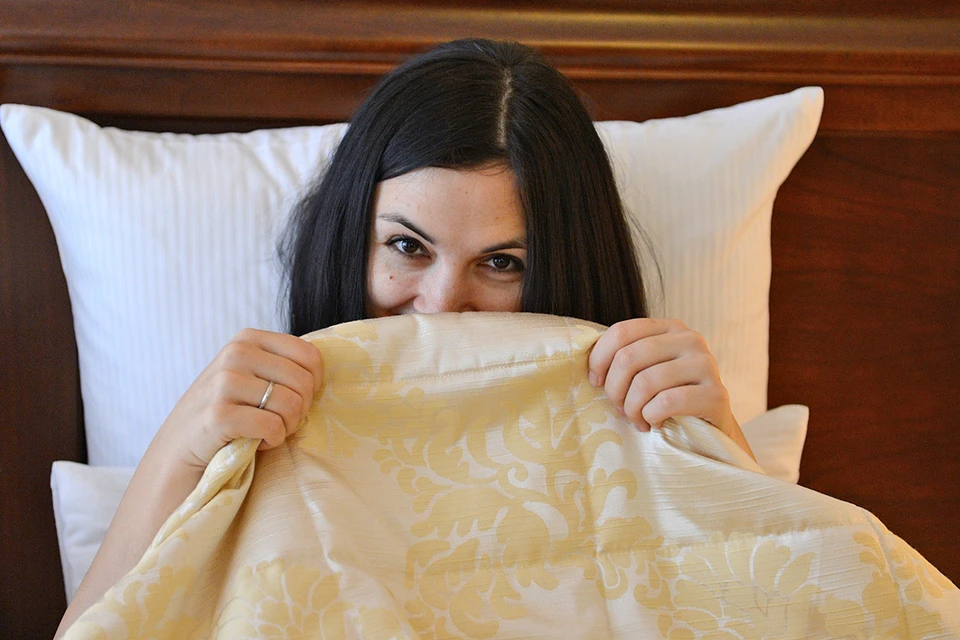
Taking a 90-minute nap during the day to maintain performance can be helpful.
Photo: Oleg RUKAVITSIN
At Hiroshima City University in Japan analyzed the studies night sleep surveys conducted from 2012 to 2018. As a result, scientists concluded: if you do not sleep all night, then in order to minimize the health damage from lack of sleep, it is better to schedule two naps for yourself during the day. First, take a nap for an hour and a half, and then another short 30-minute nap. This mode is optimal for preventing fatigue and drowsiness, instead of falling asleep for an indefinite period of time or immediately burying yourself under the covers for two hours.
“A 90-minute nap to support long-term performance and a 30-minute nap to reduce fatigue and acuity as a strategic combination of naps may be valuable for work efficiency and safety,” says Sanae Oriyama, a professor at the Graduate School of Biomedical and Health Sciences Hiroshima University.
DECEIVE FATIGUE
Shift work and duty that require long periods of being in shape and with a clear mind, including at night, are common among doctors. However, night shift work is known to increase the risk of sleep-related physical and mental health problems and impair work performance.
During the daytime, our internal clock activates the wakefulness mode, and at night, biorhythms tell us to rest, which increases the likelihood of mistakes and accidents. In the medical field, this can lead to serious harm to patients or doctors and staff themselves. So in Japan, nurses are usually allowed to sleep up to two hours during a 16-hour night shift. Oriyama, analyzing data from the work of nurses, found the optimal way to endure duty without losing concentration, and not to knock the nurses themselves off their feet.
– During a night shift, which, for example, lasts from 4 pm to 9 am the next morning, sleep lasting 90 minutes and, after some time, 30 minutes, ending at midnight and 3 am respectively, is considered more effective than 120-minute monophasic sleep, waking up at midnight. But tasks that require quick response and a high level of security are best planned between 2 a.m. and 9 a.m., says the scientist.
A complete sleep cycle takes 90 minutes, and waking before completion can worsen sleep inertia, drowsiness, and confusion. But also taking a short nap—a 30-minute nap (or less)—helps increase alertness, alertness, and energy levels.
ANOTHER HALF AN HOUR FOR YOUNG MOMS
It is interesting that the sleep regime developed by the Japanese scientist may be suitable for young parents who not only need to care for their children, but also work. 41 women aged 20 years took part in the study.
New mothers were invited into a soundproof, windowless laboratory to simulate a 16-hour night shift. The room temperature was maintained at a comfortable 26 degrees Celsius, and the lighting intensity above the desks was set to levels typical for an office. The women’s temperature, self-reported levels of sleepiness and fatigue, heart rate and blood pressure were measured. After the tests, the participants could do whatever they wanted in their place at the table, such as reading, drawing or drinking water. During scheduled naps, they moved into the next bedroom. So it turned out that for mothers, for maximum concentration, the nurses’ schedule with two falls asleep – for 90 minutes and then for another half an hour – was quite suitable.
TOP PRODUCTS FOR GOOD SLEEP
From neurologist Anna Cherepanova:
Normally, the sleep hormone melatonin is produced in us at night, most of all from 8 pm to 4 am. Therefore, it is important to fall asleep before midnight.
In fact, melatonin is also found in food. And here are some of them.
– Milk. A glass of warm milk at night is a well-known remedy for falling asleep. And for a reason! Milk is one of the sources of melatonin, as well as tryptophan, which increases the concentration of melatonin and serotonin and helps you fall asleep easier.
– Rice. Rice contains a lot of melatonin and tryptophan.
– Oily fish such as salmon and tuna.
– Pistachios. Pistachios are high in vitamin B6, which helps convert tryptophan into melatonin.
– Tart (sour) cherries.
– Bananas contain melatonin, tryptophan, vitamin B6 and magnesium, which promote the production of serotonin and help you fall asleep. Unripe ones contain more melatonin.
– Corn.
IMPORTANT!
The actual melatonin content of each product may vary depending on many factors.